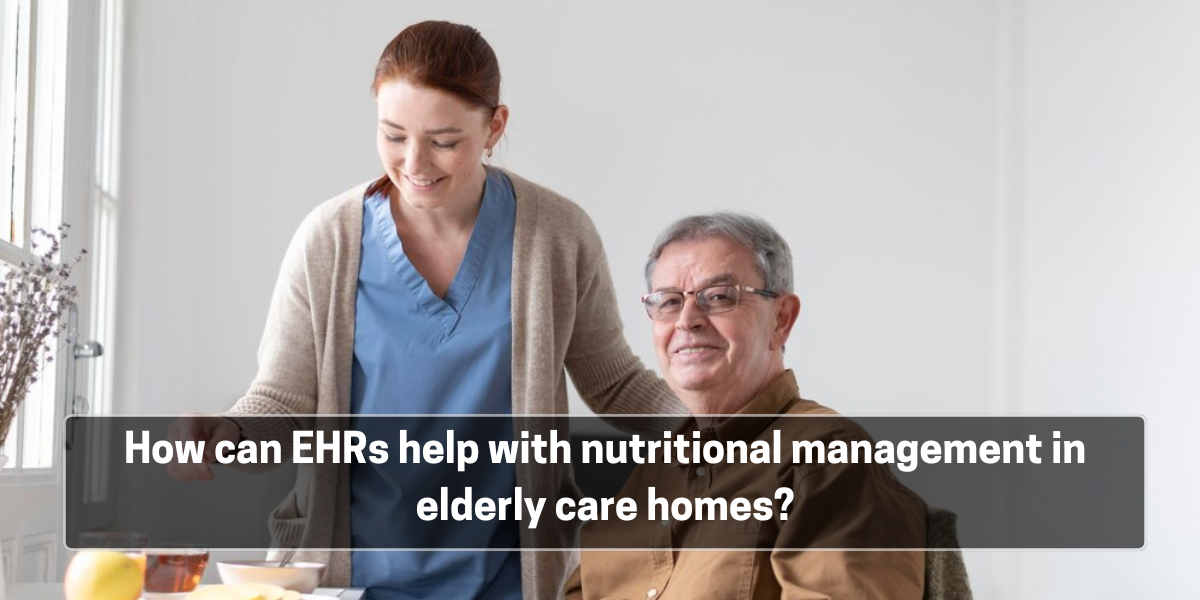Elderly care homes are dedicated to the complete well-being of their residents, which includes meticulously managing their nutritional needs. In this area, Electronic Health Records (EHRs) play an important role. These digital systems offer a centralised database that caregivers can access to tailor nutrition plans perfectly suited to each resident’s unique health requirements.
Comprehensive Resident Profiles for Personalised Care:
- Dietary Needs and Preferences: Each resident has a unique palate and dietary requirement. EHRs maintain an exhaustive record of these preferences alongside any allergies. This readily accessible information helps caregivers plan nutritional plans for conditions such as lactose intolerance or gluten sensitivity with ease.
- Medical Conditions: At elderly care homes, many residents suffer from a wide range of medical conditions which can greatly influence their dietary needs. EHRs keep a meticulous record of all medical conditions, thus enabling caregivers to customise meal plans with precision.
- Medication Interactions: At elderly care homes, health care professionals must be careful to avoid adverse food-medication interactions. EHRs detail each resident’s medication regimen, flagging any potential food conflicts. This proactive approach ensures that all dietary plans are safe, enhancing peace of mind for both staff and residents.
Personalised Meal Planning:
- Dietician Integration: With EHRs, dieticians and nurses collaborate seamlessly. They use EHRs to ascertain the nutritional needs unique to each resident. As a result, they can create meal plans that promote health while pleasing the palate.
- Nutritional Tracking: EHRs can monitor the nutritional value of every meal. This data helps in fine-tuning diets to ensure that each resident receives exactly what they need to thrive.
Improved Communication and Collaboration:
- Care Team Coordination: EHRs enhance the synergy between nurses, dietitians, doctors, and care staff, allowing them to share updates and insights in real-time. This integrated approach elevates the quality of care provided to each resident, ensuring no detail is overlooked.
Enhanced Efficiency and Reporting:
- Reduced Errors and Improved Accuracy: By centralising critical information, EHRs significantly reduce the risk of dietary errors and prevent potential food-medication interactions.
- Data Analysis and Reporting: The ability to analyse nutritional data over time allows care teams to observe trends and continuously improve the nutritional plans.
EHR and eMAR: 2 Important Tools to Improve Care Quality at Elderly Care Homes
EHRs integrate all patient information, including medical history, medication lists, treatment plans, allergies, laboratory and test results, and more, into one place. While eMARs help reduce medication errors by ensuring accurate communication of medication orders (e.g., eliminating handwritten order interpretation errors) and confirmations of medication administration (e.g., barcode scanning for medication verification), they also streamline the medication administration process by simplifying the tracking and updating of patient medication schedules. This can free up valuable staff time for other important tasks, such as spending more time with patients or focusing on complex care needs.







